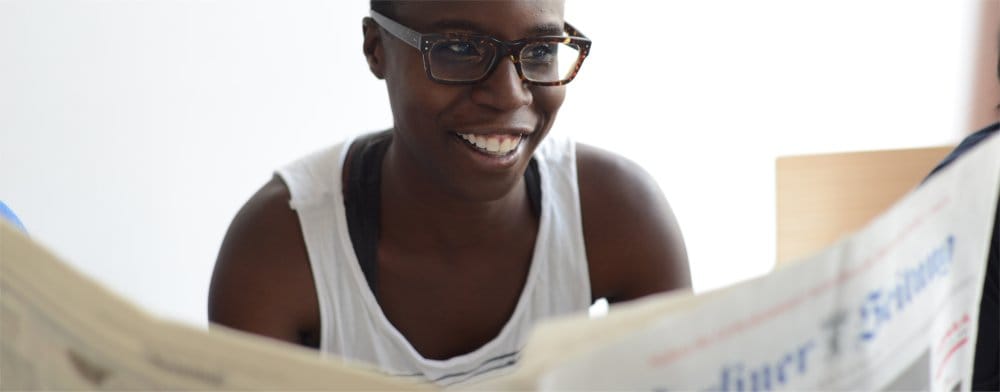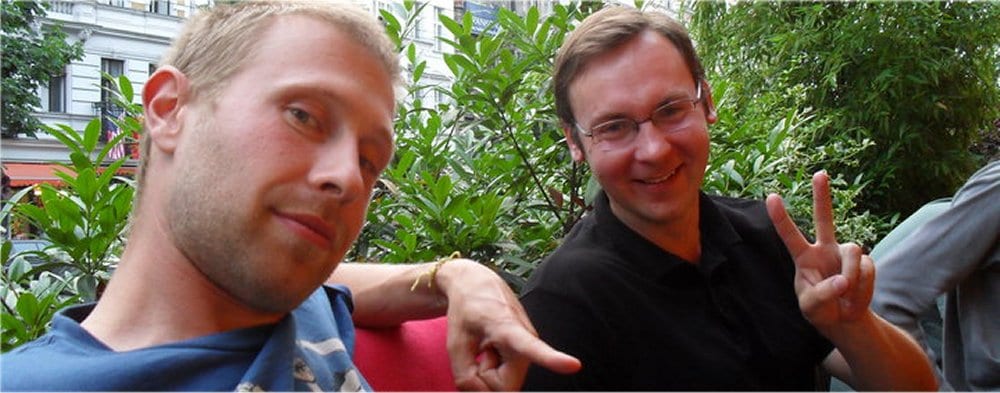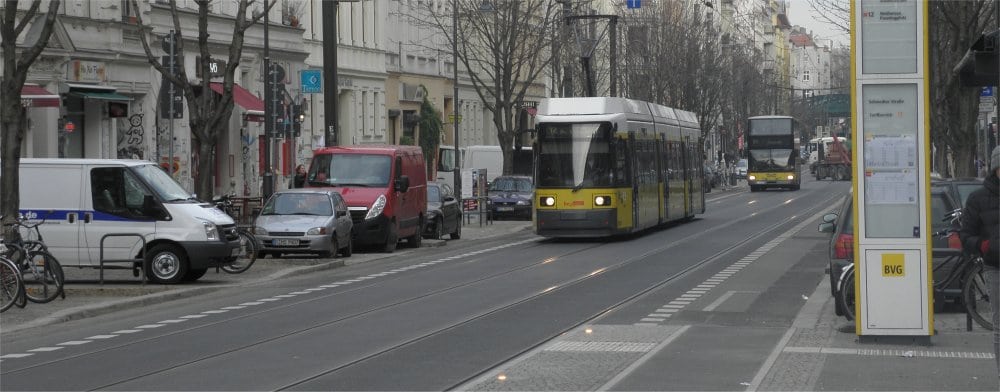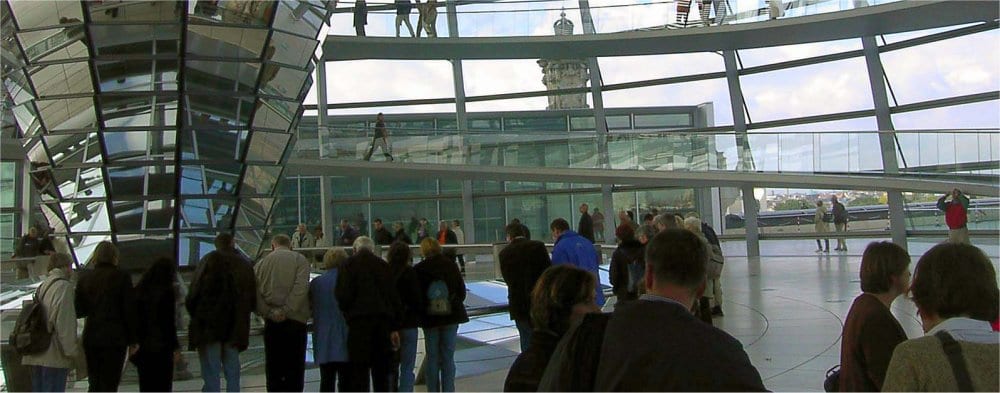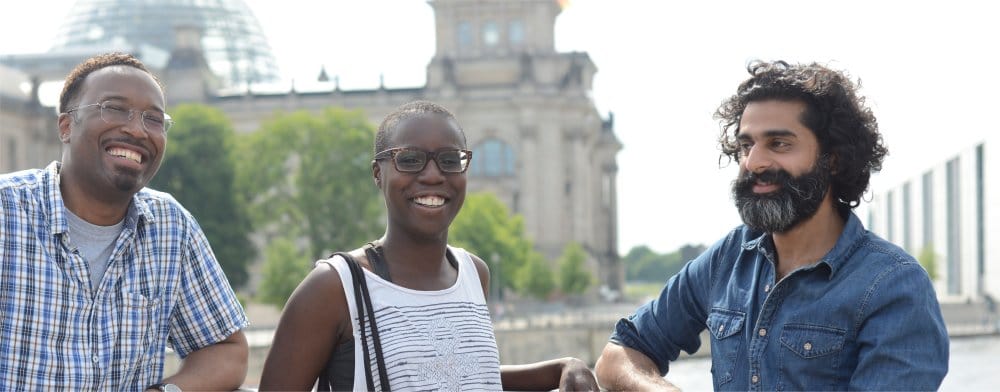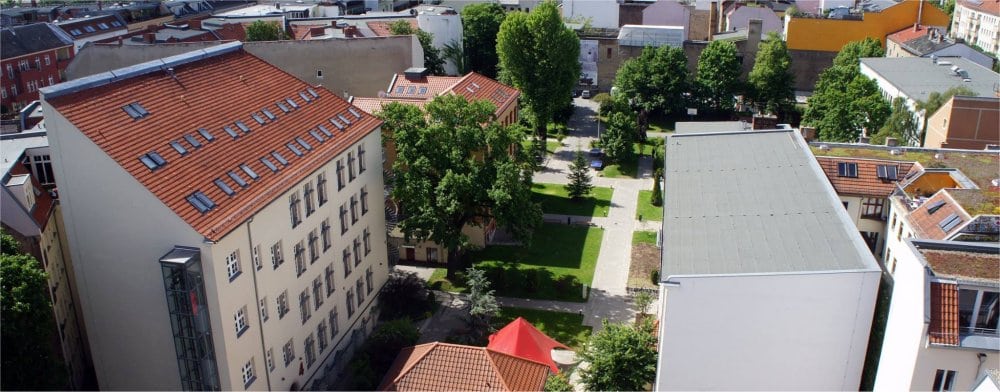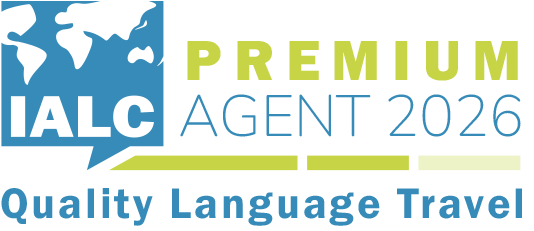Menu
Get your free Quote...
German and Work Experience in Berlin
Improve your German
and build your CV with work experience in Berlin
If you are an EU citizen and already have good German language skills, why not hone those skills and take a work placement in Berlin with CESA this year?
There are an amazing array of opportunities available to anyone who is interested in this exciting work placement programme.
• 4 week German course + 6, 8 or 12 weeks internship in Berlin
• Start: any Monday all year round (except Christmas period)
On average the school organises 80 – 100 work experience places every year.
Prerequisites for this German work experience course are a commitment to a minimum four week course duration (be it the Standard, Intensive or Combined Courses) – longer, if you need more time to reach level B1 ). German host companies in Berlin will always require a minimum B1 level language ability. The work placement starts AFTER the German course concludes. Placement working hours are usually a full day commitment, running Monday to Friday.
Work Experience
Programme Requirements
- knowledge of German to B1 level by the time you start the internship
- participation in a German language course of min. 4 weeks – longer if you need more time to get to level B1
- minimum age 18 yrs
- hold an European Union passport
- finished secondary education
- must be available for a min. 10 weeks (course + internship)
- reliability
Professional work experience
Fields offered to date
- Administration
- Advertisement
- Architecture
- Consulting
- Culture and cultural institutions
- Ecology
- Event Management
- Graphic & Design
- IT & Communication Technologies
- Law – legal internships
- Marketing
- Political Organizations (NGOs)
- PR Public Relations
- Real Estate
- Social Work
- Tourism
Please note: these are samples – the German language school in Berlin guarantee an internship in the professional field you indicate, not in a specific company. As host companies insist on a personal interview, you will receive the definite address and acceptance from the selected company once you are in Berlin, not prior to your arrival in Germany.
German Course Fees 2026
At the end of the Work Experience programme you will receive two certificates. One from the German language school and one from the host company about your internship in Berlin. The school certifies your language skills; the host company issues a statement commenting your performance as an intern.
Course Application
Please apply for an internship in Berlin ideally 8 to 12 weeks prior to course start date) and absolutely no later than 4 weeks prior to course start date (in the summer months late enrolment won’t be feasible, as course / placement /accommodation options will be in high demand), accompanied by:
• CV in German. Don’t worry about minor mistakes made: If necessary German school staff will correct linguistic mistakes before sending it out to companies. They are also able to work on your CV once out in Berlin, but CESA will need at least a first draft when you enrol, however imperfect.
• letter of intent in German – describing your language skills, previous professional experiences and expectations regarding the internship in Berlin – sample letter of motivation
• your CESA course enrolment form
Coaching session with German school staff
One free coaching workshop (90 minutes duration) at the school in Berlin, held after class in the afternoon, and usually shortly before students have their interview or their first day at their Berlin host company. Sometimes there is only one intern coming to the workshop, sometimes 2 or 3, usually from different countries and diverse backgrounds.
A one-to-one session ensure plenty of personal attention, however where there are a few students together they can talk to each other about their concerns and expectations. They can also hear what other interns say about their professional backgrounds and realise that they must ask a lot of questions in order to fully understand what each intern does – exactly as a German boss would need to, when they are not familiar with your background.
Read more
Through the coaching session students learn that an internship is a challenge for both parties, the intern and the boss. Attendants come from different countries and different professional backgrounds. Ages vary, too – some interns have only just finished high school, but other participants can be 40 years of age or older and are using the internship to refocus themselves professionally.
The coaching session is a very practical affair but there are theoretical guidelines as well – new students learn that it is necessary courtesy to their host company to research the business/organisation online and gather information on it. But the focus is on the practical issues. For example, several questions will be posed that a German boss or a German colleague is bound to ask the work experience student:
1/ What have you done to date professionally?
2/ What do you know about us? Why are we of interest to you?
3/ What can you offer us, in terms of skills?
4/ What do you want to do later in life?
These questions are presented in German in the coaching session and students are asked to prepare their answers in German. Students are not expected to learn their answers by heart, but will be asked to repeat them several times, so that they can leave the session able to answer with competence if not fluency, in German.
Intercultural issues are also addressed, in practical terms. Some students are keen to discuss the job requirements in their home country and ask if customs are the same in Germany. In France for example it seems to be acceptable for a boss to ask candidates if they have negative characteristics or vices. In Germany, a boss is not supposed to do that, so these are the types of questions we discuss, to reassure the students. The most frequent question, however, is that about appearances: how best to dress? The answer is that in Berlin dress is quite casual, so there is no need to dress up.
Does the German work experience programme interest you?
Please discuss the course with CESA staff by email, or enrol online or by phone: 01209 211800
